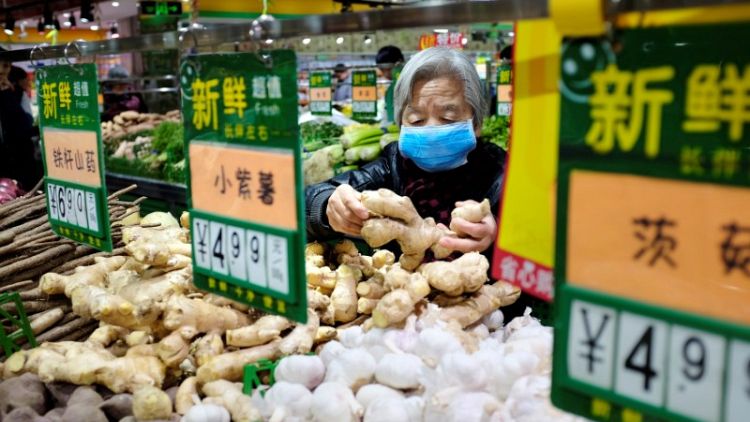BEIJING (Reuters) - China's producer inflation cooled in August amid softening domestic demand, pointing to a steady slowing in growth in the world's second biggest economy as it confronts heightened risks to the outlook from a heated trade dispute with the United States.
Consumer inflation, on the other hand, picked up more than expected in August, though policy makers are likely to stay focused on growth rather than pricing pressures as U.S. President Donald Trump raises the stakes in the tariff war.
The producer price index (PPI), a gauge of industrial profitability, rose 4.1 percent in August from a year earlier, compared with a 4.6 percent increase in July, according to data released by the National Statistics Bureau on Monday.
Analysts polled by Reuters had expected August PPI would rose to 4.0 percent. On a monthly basis, PPP picked up from 0.1 percent in July to 0.4 percent in August.
Raw material prices rose 7.8 percent in August from a year earlier, compared with a 9.0 percent increase in July.
"Despite soft industrial output in the third quarter, domestic polices such as boosting infrastructure spending could provide some support to prices of related industrial goods in the fourth quarter,” said Betty Wang, Hong Kong-based senior China economist at ANZ, noting that month-on-month PPI growth has been picking up.
China's economic growth cooled slightly to 6.7 percent in the second quarter, though worries about a sharper slowdown have increased in recent months amid rocky trade relations with the United States.
The two countries have already slapped tit-for-tat tariffs on $50 billion of each other's goods, and U.S. President Donald Trump has warned that he was ready to slap tariffs on virtually all Chinese imports into the United States.
With domestic and foreign demand slowing, and export orders in both official and private factory surveys extending their declines in August, investors have cause to be nervous about China's outlook.
POLICY SUPPORT
China's policy makers are trying to keep the economy on an even keel as the dispute with the United States threatens to dent output.
The government has responded by loosening its liquidity tap in money markets and speeding up infrastructure projects as it eyes expansionary fiscal policy to support growth. Beijing has approved new railways in six cities in August.
On a year-on-year basis, the consumer price index (CPI) rose 2.3 percent in August, fastest pace since February this year and above expectations of 2.2 percent. It also accelerated from July's 2.1 percent.
The food price index climbed 1.7 percent from a year earlier as vegetable prices rose and pork prices rebounded, while non-food prices grew 2.5 percent in August.
On a month-on-month basis, the CPI increased 0.7 percent.
Since August, China has reported multiple African swine fever (ASF) outbreaks that have pushed up pork prices in the country's south as demand grows ahead of a week-long holiday in October and also raised the prospect of more imports.
However, analysts say that while ASF has increased the upside risk to the inflation outlook, the impact would most likely be small.
"Improvements in China's disease management and pork's lower CPI weighting these days suggest that any pick-up in inflation this time around would be more moderate," said Chang Liu, a London-based China Economist at Capital Economics, in a note last week.
Beijing would be unlikely to respond by raising interest rates even if the disease becomes widespread, Liu said, adding that Chinese officials tend to prioritise economic growth when faced with a combination of slowing momentum and rising inflation.
That view was echoed by vice-chairman of state planner Ning Jizhe in comments in August that inflation will not present a big problem this year.
China has set an inflation goal of 3 percent for 2018, same as last year.
The core consumer price index, which strips out volatile food and energy prices, rose 2.0 percent in August, compared with 1.9 percent in July.
(Reporting by Min Zhang and Stella Qiu; Editing by Shri Navaratnam)



